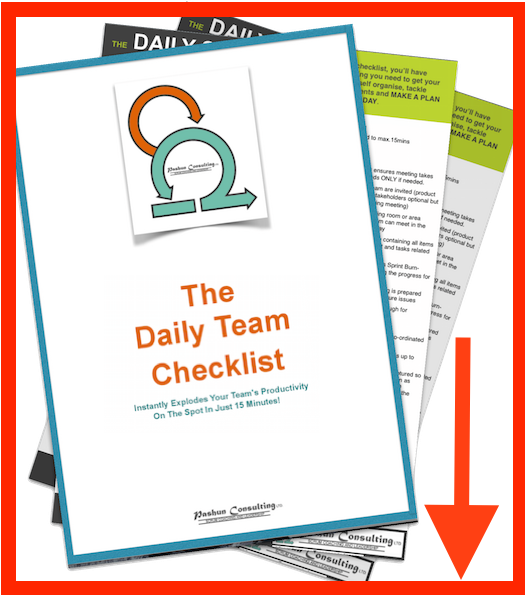Scrum Team (agile scrum team,scrum team size,what is scrum,sprint scrum,scrum certification)
One major difference between scrum and many of its predecessors is the emphasis on the team as opposed to the other roles. Scrum empowers teams to organise themselves, make decisions and solve problems. As usual, the secrets of a successful project are hiding right under our noses. Learning just how powerful your team can be and leveraging that power can boost your project’s performance many times over. There is a saying that two heads are better than one, but imagine having seven plus or minus two heads at your disposal. They are a tremendous source of risk management, planning and communication. How do we leverage the team’s power? Well outside of planning, we usually do so by asking questions.
To illustrate this point, let us imagine that we are in our final sprint before going live. There is nothing to stop us from developing a list of risks and mitigations however, we can make sure our bases are covered by asking a few questions related to the release.
(NOTE: Struggling to understand the basics of scrum quickly? Get the Power of Scrum Audio Book. You can use it to get a complete overview and foundation in scrum fast, before even having to “roll-out” a single scrum practice to your team. Check it out here.)
Typical examples of questions i have asked are:
- are there any other risks you can think of?
- are we in a good position to go live?
- can you check over the deployment plan and flag anything ive missed?
- how much time do we need between deployments?
I recommend writing story cards for anything that affects the team. This way, planning can be used to plan deployments, documentation or anything at all related to the project, even if it is not writing code.
The point here is that in traditional project management methods, a lot of emphasis is placed on the project manager to make decisions. This causes project managers to single-handedly make decisions, whether technical, risk based, editorial, product based or otherwise. However, ask yourself is a project manager a technical, risk, editorial or product expert? The answer is, no. so if a project manager is not an expert in these things, why not rely on the experts to make decisions in their field, and allow the project manager to manage the process.
(NOTE: Struggling to understand the basics of scrum quickly? Get the Power of Scrum Audio Book. You can use it to get a complete overview and foundation in scrum fast, before even having to “roll-out” a single scrum practice to your team. Check it out here.)


